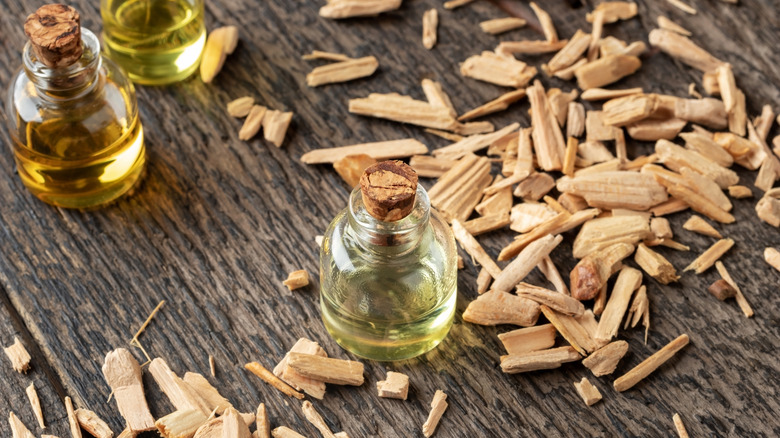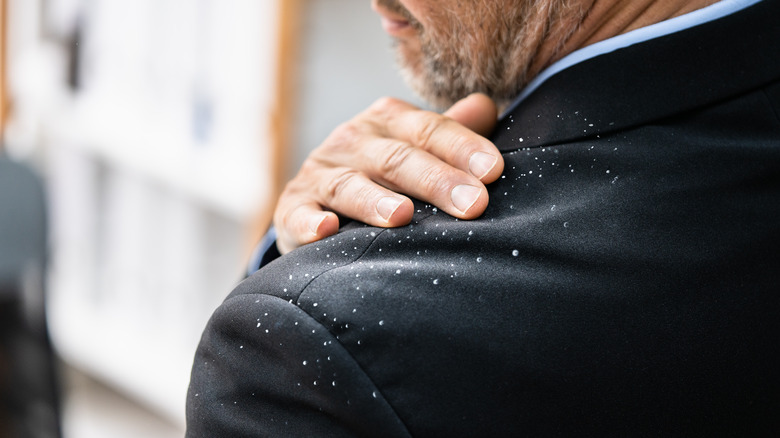Can Cedarwood Actually Help Control Dandruff?
If you've ever noticed white flakes on your shoulders after brushing your hair, you're not alone. Dandruff, which causes itchy and flaky scalp, is super common, affecting nearly half of the adults in the US (via Healthline). Flakes of dry skin can build up on the scalp, getting worse in the fall and winter when the air is dry. It's harmless, but it can be embarrassing. The good news is that it's easily treatable with over-the-counter products, medicated products, and at-home remedies, like cedarwood oil.
Dandruff is related to seborrheic dermatitis, except it only occurs on the scalp (via Healthline). It's different from dry skin, which just means your scalp might get flaky from not being hydrated. There are lots of reasons why dandruff can happen, but some of them include stress, overactive oil glands, not shampooing enough, overbrushing the hair, a yeast infection called Malassezia, and different personal care products. You may be at higher risk for dandruff if you're male, have oilier hair, or have certain illnesses like Parkinson's disease or HIV.
How cedarwood oil can help
Cedarwood oil is made from the bark, leaves, needles, and berries of the cedar tree (via Healthline). The components in cedarwood oil — cedrine, cedrol, and thujopsene — may be antiseptic, anti-inflammatory, insecticidal, and antifungal, making it a popular at-home treatment for things like acne and hair loss, but it also works for dandruff. Try mixing cedarwood oil with a carrier oil, like jojoba or coconut, and massaging it into your scalp. You can also try mixing a few drops directly into your regular shampoo or conditioner.
Beyond cedarwood oil, there are other easy remedies to try for defeating dandruff. According to WebMD, you can simply brush your hair more often, which carries the oil away from the scalp and prevents buildup that causes excess skin cells and dandruff. You can also try one of the many available dandruff shampoos, like Head and Shoulders, which have different active ingredients that help control the flakes. You could also try using aloe vera, apple cider vinegar, lemon juice, or olive oil on your scalp. Medicated shampoos or topical medications may be an option. See your doctor if your dandruff is persistent and doesn't respond to home treatments.


